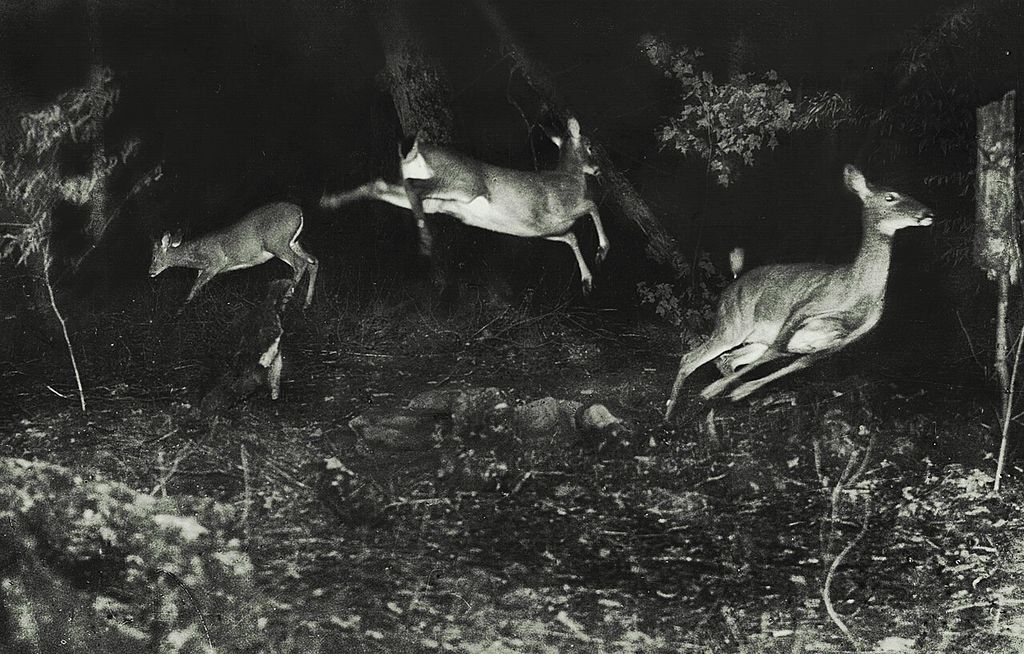Three white-tailed deer. Courtesy of National Geographic. Public domain, via Wikimedia Commons.
I began listening to Wicca Phase Springs Eternal’s Full Moon Mystery Garden after I took two road trips through Death Valley, the first literal (in California) and the second figurative (in a hospital). So when I heard him say “On a mountain under full moon / I could say goodnight and mean it” and then “Another night I’m in the magic mirror / Another night engaged in seeing signs,” it felt like, well, a sign. Symbols, like mirrors, are roads to the other side; I have always been obsessed with looking for and in both. Though both of my trips actually happened, their allegorical affinity made them each less real, and harder, somehow, to return from. Seeing yourself through reflections can be a way of playing dead, of getting lost where you are not; in Full Moon Mystery Garden, it is also a way to get found.
The album’s sigillic scenery is almost too familiar: black cat, black Polo, moon, mountain, mirror. But Wicca has an uncanny ability to show us what are basically gothic stock images under a strange new light, reanimating them. If similarly symbolically-hyperactive Bladee’s falsetto makes incantations out of normal nouns, Wicca’s hoarseness brings the otherworld to earth: rural Pennsylvania; Providence, Rhode Island. That’s magic, I guess—or music. Wicca’s older work is equally lyrically brilliant, but more claustrophobic: words are exchanged in bedrooms, in clubs, over text, in bad relationships. Now, he’s alone in a car looking out, “the twilight on repeat.” The album, which has four different songs with the word moon in the title, drives you along a kind of psychogeographic cul-de-sac, a looping map of road signs that seem to occur in too many places at once—the same way certain American towns all look the same, the way they all have a Main Street, a Crescent Street, and trees at their edges. Ex–emo teens will recognize the landscape. The album’s frequent refrain—“In one mile, turn left on Garden Avenue”—is spoken by a female GPS. Though he knows what road he’s on (“Dark Region Road”) and where he’s going (the “portal through the pines,” “Hickory Grove”), he still needs directions: a voice from elsewhere, an image out there that lets him recognize what he already knows. Funny how another person’s words can lead you gradually back to a place where your self and your world coincide—to life. “The meadow isn’t that far away,” and the mystery, meanwhile, is here.
I was on a back road by myself
In Waverly Township
Totally immersed in where I was and what I felt
Amazing how a simple drive
Can open my eyes
To what is out there
—Olivia Kan-Sperling, assistant editor





